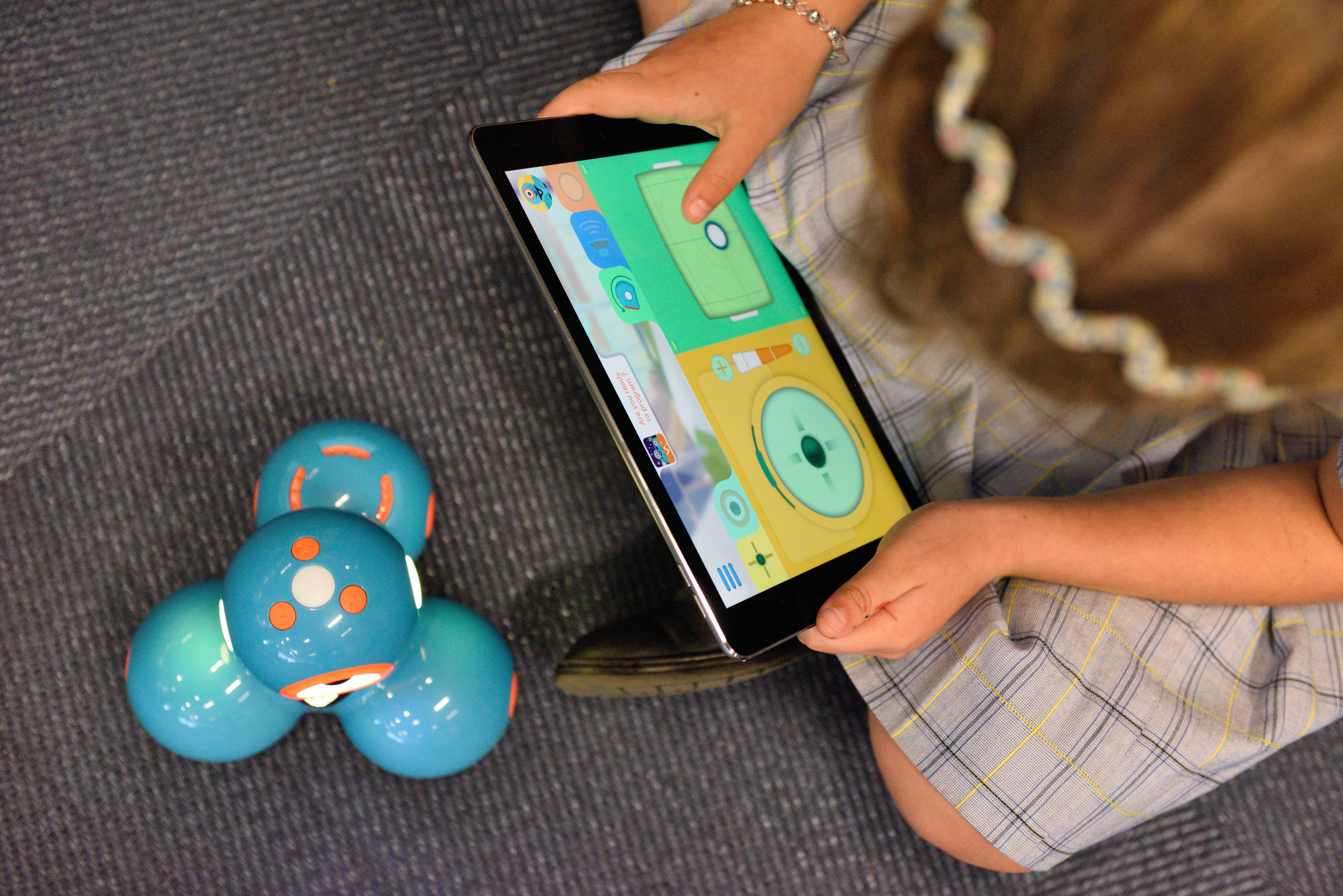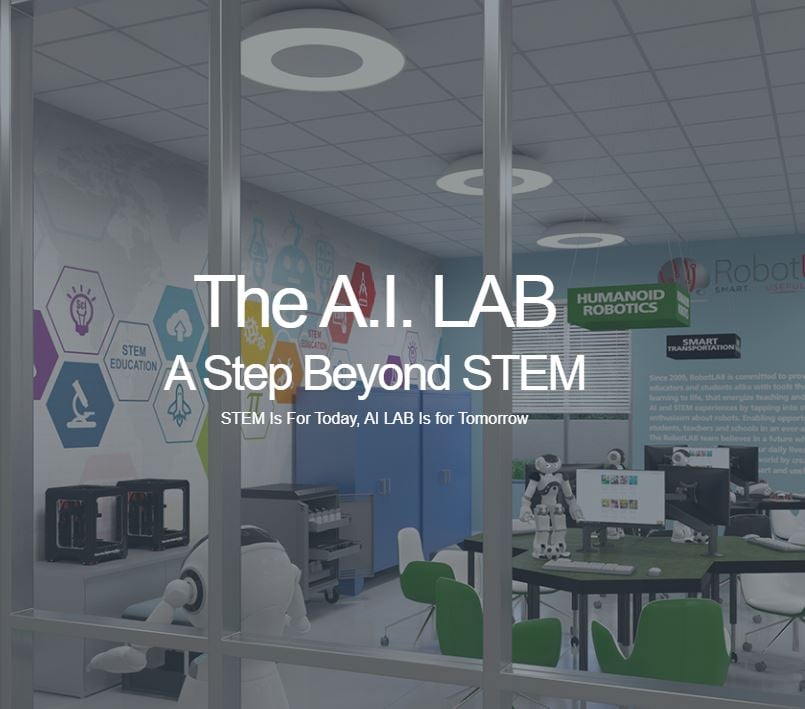By Aaron Swain
The future of education is deeply linked with the development of new artificial intelligence technologies and computing. Even while the debate is still ongoing as to what extent AI will replace teachers' presence. AI in the U.S. Education keeps growing at a reasonable rate. It is projected to go as high as 47.5% by 2021.

AI helps teachers' detect students with learning disabilities and address them at an early stage. Educational software also enables teachers to enhance teaching, customize courses, and simplify grading. At the same time, schools' administrative aspects are automated with AI prediction and pattern learning tools. Hence AI augments the educational admin processes, content delivery, control, and assessment.
Therefore, educators cannot overlook the benefits of AI education. This is not saying that AI isn't without its challenges. Thus, in this post, we'll consider the advantages and challenges of AI in education for teachers and schools.
Advantages of Artificial Intelligence on Education
AI education comes with many benefits that make teaching and other admin processes easier for educators and schools. These are some of the advantages of artificial intelligence in education:
Monitor and Analyse Student Progress in Real-Time
Teachers can monitor and analyze students' progress in real-time using AI tools. It means that the teachers do not need to wait until they compile annual report sheets. Also, AI gives teachers' recommendations as to the areas that require repeat or further explanation. In this instance, AI smart analytics picks up on topics that most of the students struggled with.
Saves Time and Improves Efficiency
Because AI demonstrates human-like skills like learning, critical thinking, and problem-solving, there's an apprehension about AI. Thus, the common notion is that AI will eventually take the place of teachers. This is not true. What AI does is handle the burden of repetitive tasks teachers and schools have to deal with daily. There are also custom writing services like Online Writers Rating that help handle any repetitive writing tasks. It helps save up more time so teachers can focus on teaching the students and other essential duties.
For example, when using a grammar tool, the teacher doesn't have to repeatedly correct students' grammar. The students can use the AI-powered tools to learn word pronunciations, meaning, and proper usage. AI education is also beneficial to international students that are still struggling to learn a new language.
Furthermore, routine tasks, such as attendance, can be handled by AI. Thus, AI standard K-12 programs platforms like RobotLAB provide efficiency and effectiveness in input, outcomes, and workflow.
More Personalized Learning Experience
AI in education enables schools to carve out personalized learning experiences for their students. From student data, AI can analyze the student's learning speed and needs. With the results, schools can personalize course outlines that enhance learning based on students' strengths and weaknesses.
Craving out personalized coursework that addresses each student's learning needs is something even the best of tutors find challenging. AI-based technologies make it easier for schools to make better-informed decisions. For instance, they can include topics that appropriately suit learning requirements.
Convenient and Improved Student-Teacher Interactions
AI education makes interaction more comfortable and convenient for both students and teachers. Some students may not be bold enough to ask questions in class. Such could be as a result of the fear of receiving critical feedback. So with AI communication tools, they can feel comfortable asking questions without the crowd.
While on the part of the teacher, they can give detailed feedback to the student. Sometimes, there isn't enough time during classes to respond to questions in detail. They can also provide one on one motivation for any student that needs help.
Simplifying Administrative Tasks
Every educational institution has tons of school admin tasks they need to deal with daily. Including AI to their systems can help to automate such tasks. It means that administrators can have more time to run and organize the school more smoothly. Additionally, schools can make use of proofreading and editing services. Such services can help ensure that administrative documents are well written and error-free.
Challenges of Artificial Intelligence in Education
Irrespective of the benefits of artificial intelligence in education, there are still a few challenges. Some of these challenges include:
Cost of AI Technology
AI education comes at a high price. As new technology emerges, budgets will have to increase to cover the expenses. Besides the installation of AI software, schools will also need to consider the cost of maintenance of the software.
Thus, schools with little funding may find it challenging to implement AI-augmented learning. They also won't get to enjoy the benefit of automating administrative tasks that take up staff time.
Vulnerable to Cyber Attacks
Artificial intelligence software is highly vulnerable to cyber-attacks. Considering that it contains a ton of data, hackers are constantly devising ways to attack. Image having an entire database of student, teacher, parents, and admin information hacked into. It could be very damaging to the victims of such cyber attacks having their personal information in the open. All a school can do is to rely on installing data security protection software. Yet even with that, sometimes hackers can still get into the school system.
Little to no Room for Flexibility
No matter how analytical AI robotics can be, it cannot flexibly develop a student's mind as a teacher would. While educators can proffer multiple problem-solving methods, AI doesn't have alternative teaching methods.
AI also operates on garbage in garbage out basis. While it might detect errors, it cannot correct them. So whereby there's a human error in imputing information, AI still carries out the analytic process. But the final result will read that there are errors. Hence time is wasted, and the process has to be repeated all over again.
Conclusion
Artificial intelligence in education has brought about several beneficial changes. From classroom interactions, coursework learning, and admin processes, AI makes it all better. And the advantages keep improving and increasing as new AI technologies emerge.
On the flipside AI, education is not without its challenges. Educators are in fear of instituting robotic and systemic changes that are vulnerable to attacks. They also have to take into consideration costs implications and the lack of AI flexibility in problem-solving. These fears that arise from AI challenges may sometimes be well-grounded. Yet, teachers and schools cannot afford to ignore AI's significance in enhancing learning and process efficiency.
Discover more AI resources with RobotLAB!

Author's Bio
Aaron Swain is a writing specialist who is currently working in the writing service reviews company Best Writers Online. He is passionate about marketing and SEO. He expands and improves his skills throughout the writing process to help and inspire people.
